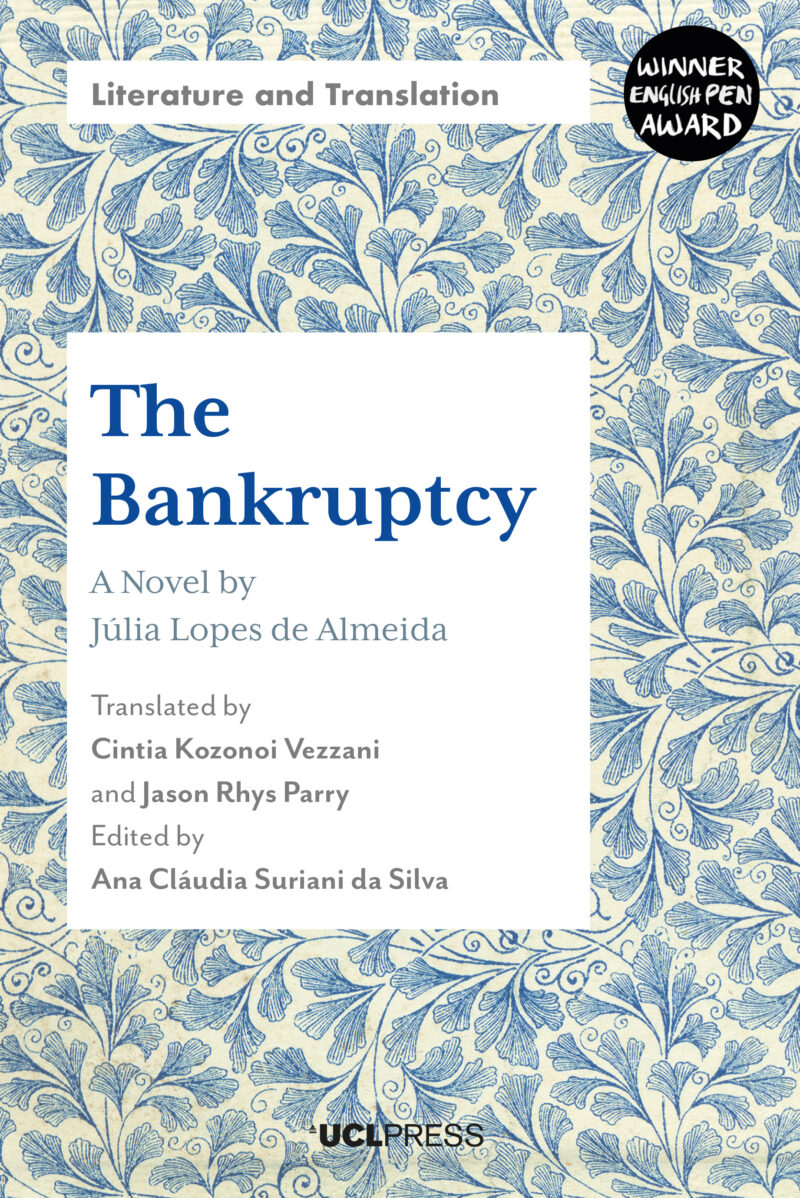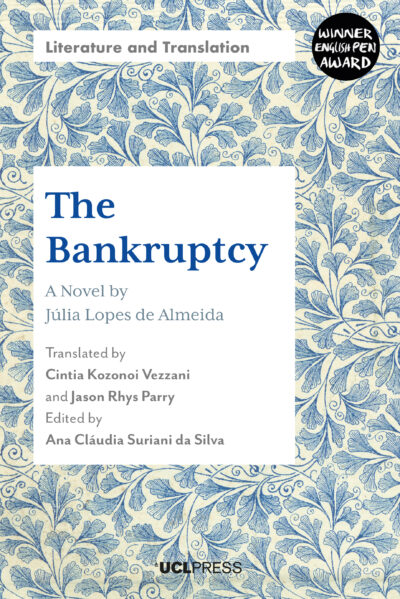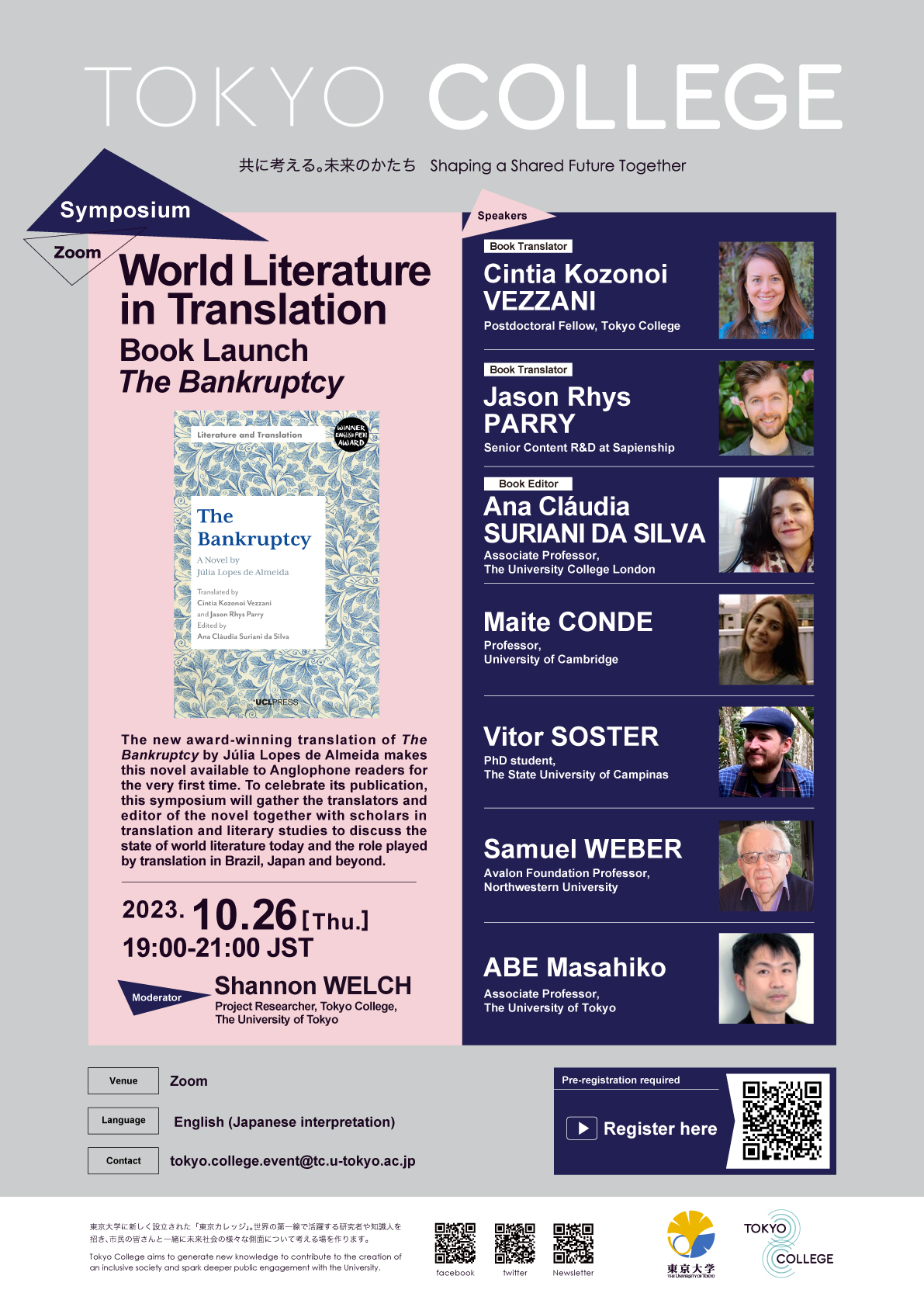World Literature in Translation Book Launch The Bankruptcy

| Date(s) | Thursday, 26 October 2023, 19:00-21:00 JST (London: 11:00-13:00; Sao Paulo: 7:00-9:00am; New York: 6:00-8:00am) |
|---|---|
| Venue |
Zoom Symposium (Register here) |
| Registration | Pre-registration required |
| Language | English (Japanese interpretation) |
| Abstract |
The new award-winning translation of The Bankruptcy by Júlia Lopes de Almeida makes this novel available to Anglophone readers for the very first time. To celebrate its publication, this symposium will gather the translators and editor of the novel together with scholars in translation and literary studies to discuss the state of world literature today and the role played by translation in Brazil, Japan and beyond.
Set in the early years of the Old Republic after the abolition of slavery, Júlia Lopes de Almeida’s The Bankruptcy depicts the rise and fall of a wealthy coffee exporter against a kaleidoscopic background of glamour, poverty, seduction, and financial speculation. The novel introduces readers to a turbulent period in Brazilian history seething with new ideas about democracy, women’s emancipation, and the role of religion in society. Originally published in 1901, its prescient critiques of financial capitalism and the patriarchal family remain relevant today.
In her lifetime, Júlia Lopes de Almeida was compared to Machado de Assis, said to be the most important Brazilian writer of the nineteenth century. She was also considered for the inaugural list of members of the Brazilian Academy of Letters, but was excluded because of her gender. In the decades after her death, her work was largely forgotten. This publication, a winner of the English PEN award, marks the first novel-length translation of Almeida’s writing into English, including an Introduction to the novel and a Translators’ Preface, and accompanies a general rediscovery of her extraordinary body of work in Brazil. |
| Program |
Presentations: 1. Book Translators: Cintia Kozonoi VEZZANI (Postdoctoral Fellow, Tokyo College, The University of Tokyo) Jason Rhys PARRY (Senior Content R&D at Sapienship)
2. Book Editor: Ana Cláudia SURIANI DA SILVA (Associate Professor in Brazilian Studies, The University College London)
3. Maite CONDE (Professor in Brazilian Studies and Visual Culture, University of Cambridge)
4. Vitor SOSTER (PhD student in Literary Theory at the State University of Campinas, Brazil)
5. Samuel WEBER (Avalon Foundation Professor of Humanities, Northwestern University and co-director of Northwestern’s Paris Program in Critical Theory)
6. ABE Masahiko (Professor, Graduate School of Humanities and Sociology and Faculty of Letters, The University of Tokyo)
Discussion
Q&A
Moderator: Shannon WELCH (Project Researcher, Tokyo College, The University of Tokyo)
Time: Thursday, 26 October 2023, 19:00-21:00 JST (London: 11:00-13:00; Sao Paulo: 7:00-9:00am; New York: 6:00-8:00am) |
| Organized by | Tokyo College, The University of Tokyo |
| Contact | tokyo.college.event@tc.u-tokyo.ac.jp |
















